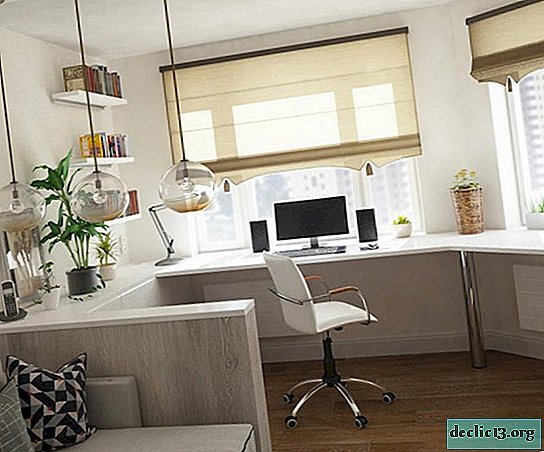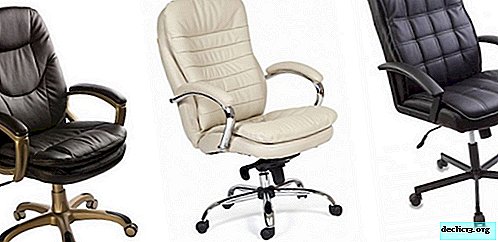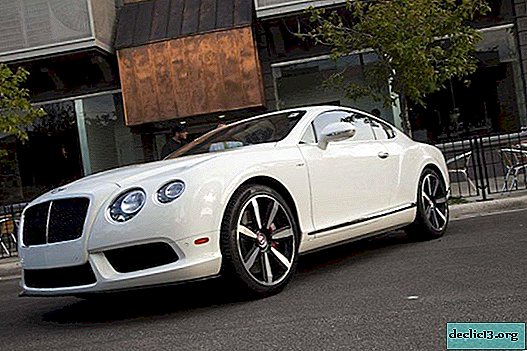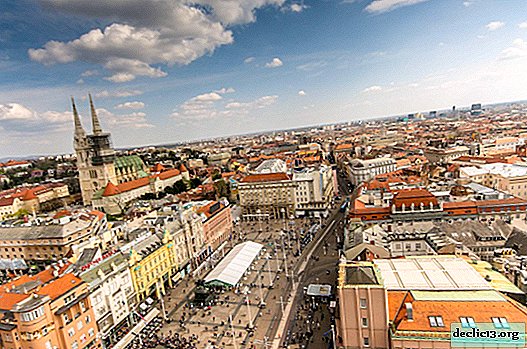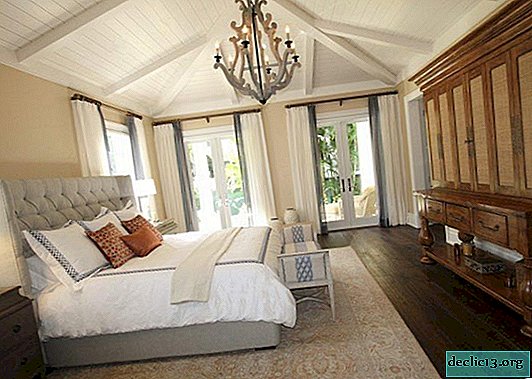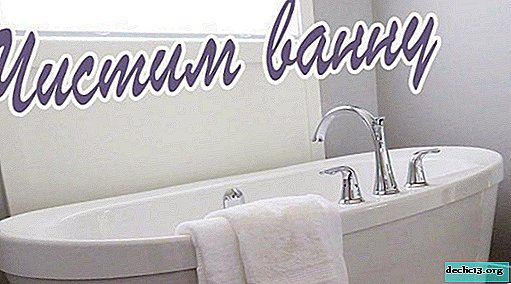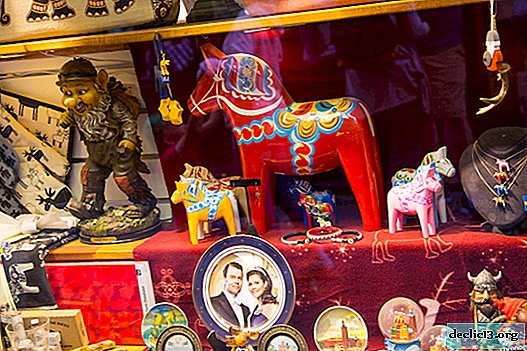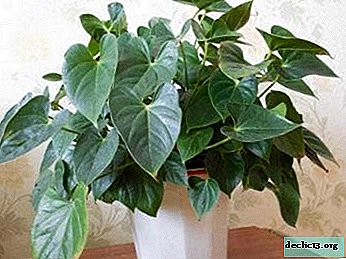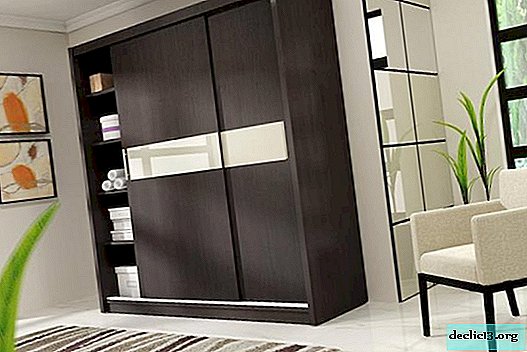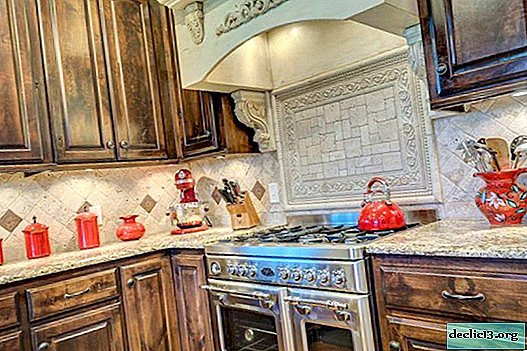Two-room apartment design: 100 best interiors of 2018
Repair and arrangement of a two-room apartment should begin based on who will live here - one person, a married couple or parents with a child. Only after that it is possible to plan the functional zoning of rooms:
- for one person or a couple, the room is logically divided into a living room and a bedroom;



- for a couple with a child, one room is allocated for the nursery, the second becomes both a living room and a bedroom.




Let us consider in detail the examples of the design of two-bedroom apartments of various quadrature, the ideas of functional zoning, redevelopment options, as well as original stylistic solutions relevant in 2018.
Design one-bedroom apartment 44 sq.m
In Moscow, such apartments are among the most common series of standard ones. From the late 70s to the beginning of the 00s, p-44 houses were mainly built, and after that they were replaced with slightly modified 17-story p-44t. In new apartments, the layout is similar to the previous one, the only difference is the availability of a bay window in the kitchen.


However, many designers consider such housing not well thought out and often modify the existing layout. Usually there are few options - joining a balcony, combining a bathroom.



In exceptional cases, it is possible to combine the kitchen and the room (when the wall between these rooms is not bearing). The ceilings in the houses of p-44t are quite high, which allows the arrangement of stretch or multi-level complex structures.




Design one-bedroom apartment 60 sq.m
The projects of two-room apartments of 60 sq. M in new buildings are distinguished by a thoughtful and comfortable arrangement of rooms and functional areas, so there should be no problems with redevelopment. Moreover, some developers even in the same house have provided several different project options. And sometimes at the conclusion of the contract even at the construction stage, it is possible to independently plan.









Design one-bedroom apartment Khrushchev
Without redevelopment of two-room Khrushchev, designers do not represent a comfortable housing. Small rooms with low ceilings, a cramped corridor, a bathroom, like a crypt, unconditionally require fundamental transformations. The benefit of the correction of living space can be made without problems, because in most of these apartments the internal walls are not bearing, and even brick, which greatly simplifies their dismantling.

The design of 2-room Khrushchev provides two of the most common types of redevelopment:
- dismantling the partition separating the kitchen and the room, and obtaining a kitchen-living room-dining room and bedroom;



- dismantling the wall between the rooms in order to obtain a studio apartment. Alternatively, you can remove both partitions and reduce the area of the bedroom by installing a wall of drywall. And it is possible and easier to isolate the bedroom area with screens or shelving;


- You can add space by attaching a balcony to the room;
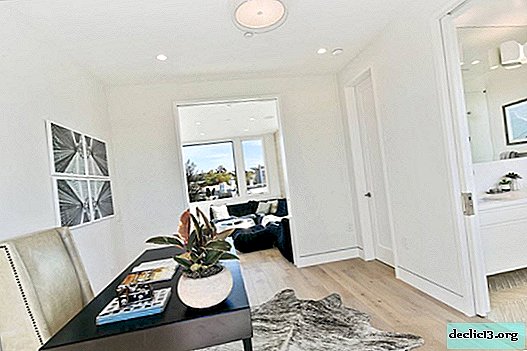
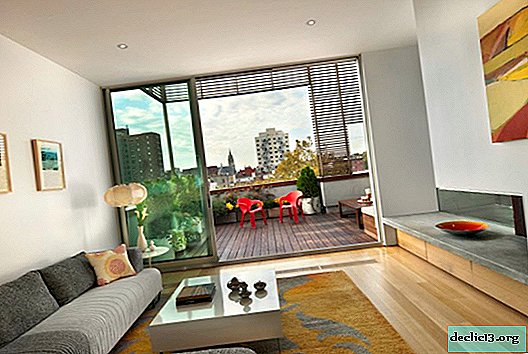
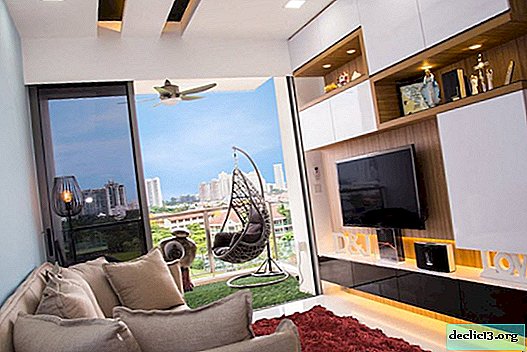 demolition of the wall between the bathroom and the toilet allows you to get about 2 square meters of usable area.
demolition of the wall between the bathroom and the toilet allows you to get about 2 square meters of usable area.


In fact, the possibility of redevelopment depends on the technical characteristics of the building - the age of the house, the location of windows, doors, load-bearing walls. One way or another, redevelopment requires coordination, especially if the bathroom is moved, utilities or the bearing wall is affected.







Functional zoning
It is easy and effective to organize space using zoning. It allows you to conditionally divide the room into several "islands", each of which will have its own functional purpose. Today, designers most often prefer to use the following zoning options:
Kitchen-dining room-living room. At the border of two rooms (kitchen and living room), a dining area is equipped. If the living area allows, here you can still allocate a zone for an office.






Living room-bedroom. The case when one room becomes a nursery, and the second - just multifunctional. The zoning effect is achieved by a partition or modular furniture (sofa bed or when the bed is hidden in a closet).




Living room (bedroom) - dressing room. An open or closed wardrobe can serve as a partition between zones, and can be a large spacious wardrobe.




Living room (bedroom) - office. In a separate living room, not combined with the kitchen, it is easy to highlight a working corner, which will be an office. You can divide a room, for example, with a double-sided shelving unit. The office area can be distinguished in the bedroom, especially if the bed is folded into a closet.




We determine the style
Of course, in choosing a stylistic solution for a two-room apartment, first of all, you need to focus on your own preferences, and modern design ideas 2018 will help to make the interior harmonious, sophisticated and special.
An urgent question that arises before the owners of 2-room apartments: to issue an apartment in the same style or choose a different design for the rooms? Of course, a common style unites space, makes it holistic and logical. Such a solution is the best option in apartments with walk-through rooms. A single design implies a common style concept, but at the same time gives the opportunity to choose trends, colors, accents.



A significant role is played by the size of the room and its technical parameters. We’ll have to try to, for example, withstand the eclectic stylistics in a two-room apartment of 50 sq. M. meters, so that the room does not “drown” in an abundance of expressive decor and accessories. However, the apartment has 70 square meters. meters you can already afford to partially implement this idea.
Scandinavian style
In recent years, this style has become especially popular. And not surprising, because a concise, lightweight, extremely malleable, elegant Scandinavian design can be implemented both in the chic spaces of a private house, and in a small-sized city apartment. Space - uncluttered, open, bright. The airiness of pastel shades is emphasized by the rich colors of textiles, accessories and decor, adding coziness and warmth. The color scheme in the Nordic design is based on a combination of white walls, natural shades of natural wood furniture and a spectacular accent decor. The decoration uses natural and similar textures and materials.




Loft
Loft style is, first of all, a comfortable, free, eclectic and laid-back space. And it is not at all necessary to imitate a bunker in an apartment or turn a house into an old factory. Elements of the now fashionable loft can be used in any interior. Just imagine: a new unfurnished apartment without repair can be stylishly decorated even with a very modest budget. It is only necessary to use materials and objects in the decoration that would seem to be suitable only for the street: metal elements, pipes, bricks, unprocessed wood surfaces, etc.





Minimalism
A kind of reincarnation of the Japanese style, where the main thing is simplicity, conciseness, functionality, elegance, and the rational component prevails over the decorative one. In general, this is a kind of interior geometricity, a combination of impeccable space and practicality, where each element has its own functional purpose.

But minimalism does not mean a complete rejection of the original decor: single expressive accents will add emotionality, invigorate the interior. Creative designers often play in contrasts, using exotic elements in a minimalist interior - unexpected shapes and material only favorably emphasize the uniqueness and modernity of the style.

High tech
Some kind of artistic rethinking of innovation and high technology. The main features of hi-tech are clear lines, maximum functionality, plain surfaces, minimal texture, an abundance of iron and glass. The basic tones are black, white, light gray, metallic, bright splashes of color accents are allowed.
High-tech lighting of the white cold spectrum and no sophisticated shapes. Ample amount of natural light and a maximum of built-in lights. Halogen pendant lamps and geometric shapes of lighting fixtures - all in the tradition of modern style.
The decor is as discreet as possible. The main principle is less accessories, more technology.




In 2018, such refined styles as Provence, Art Nouveau, Contemporary, Country, Mediterranean, Art Deco, eclecticism and, of course, unsurpassed classics are no less relevant.





















 demolition of the wall between the bathroom and the toilet allows you to get about 2 square meters of usable area.
demolition of the wall between the bathroom and the toilet allows you to get about 2 square meters of usable area.